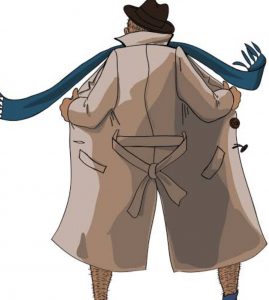Best screenwriting advice

The best advice for screenwriter
This is the best screenwriting advice I can think of to give. Make your universe stretch beyond your story. What it means is that your world and the characters have to feel like they have existed before the story started, and will continue to exist after the story ends. If you achieve this your stories will appear real and be far more engaging.
The thing that struck me over the head with this, was the performance of Irma Cadiz during a script read. Irma is playing a character called Detective Kelly in The Hostage. Her character answers the phone and it is someone she knows calling her. Once Detective Kelly realises who is on the phone, Irma’s voice becomes a little flirty. I didn’t see that relationship when I wrote that line, but Irma did. By interpreting the character in that way Irma has given that character a real life before she appeared on the page. She also gave the relationship with the other character a history that existed before the story even started. This makes the universe real.
Why is this a “show don’t tell” moment?
Irma with a simple inflection gave the story a history. The audience knows that these two probably slept together at some time. This great bit of acting gave everything context and depth. The world existed before Irma appeared on screen and it will continue after the credits.
Detective Kelly then asks her new partner a question. They have a conversation in shorthand and the scene ends.
The tell don’t show (bad) version.
The phone rings and Detective Kelly answers it. They exchange pleasantries. James asks for a favour and Detective Kelly says something like “do you ring all the people you’ve slept with when you need help?”. That thud you hear is everyone in the audience dropping into a coma. That is a crap line and an actor will die a little having to try and make it good.
She then talks to her new partner and refers to the phone call “That was my old partner, before you. If I asked you ..”
So what do we get from this?
When people say don’t direct on the page they are slightly correct. Only slightly. I am a huge fan of leaving space for performance. So I don’t dictate much. But you have to give the actor something to perform. You have to give them a hint in a direction. In the script I had that Detective Kelly was happy to be hearing from James. I had that she referred to him as “Jamie”. Irma took those hints and ran with them.
The other thing that is even more important is that you have to let go. Once people get your work, you are only doing it damage by trying to control it. I have one brain. There are eight actors, so eight brains. I have to keep eight characters in my head, so my attention is divided into eight. Each actor has one character, which gets 100% of their concentration. Simple maths really. They are going to be eight times better at knowing that character.
Letting people work with what you have written and building on it will result in a believable universe. This will make the entire thing feel like it is real. This will make you look good.
Your role as the writer.
I zoom into rehearsals and script reads as they are in New York and I am in Australia (being 2020 there is also a pandemic). My input is telling the actors (when they ask) the history between the characters. Matt who is playing Sonny asked me that exact question, “how do these guys know each other”. I gave him their back story. The next read through was off the charts. In the next read Matt’s emotional state shifted during the read, it went from being annoyed to contempt and having the upper hand. He could accomplish these emotional gymnastics because he understood their relationship and used that to build character. But that wasn’t because of me. It was because Matt is a great actor. As a writer I just supplied “a hammer” and watched him hit things.
If I wasn’t invited and the director thought she had the story 100% in her head, this wouldn’t be happening. You have to play well with others. You have to plug the holes you are asked to plug and leave people to do their jobs. You ran your race a year ago when you wrote “FADE IN”.
Best screenwriting advice
So what is the best screenwriting advice? Trust your performers. Do not overwrite it. Let them find it and build the story for you. But most importantly make sure that characters feel like they existed before they appear. This is what actors need to build the performances that make you look smart.





